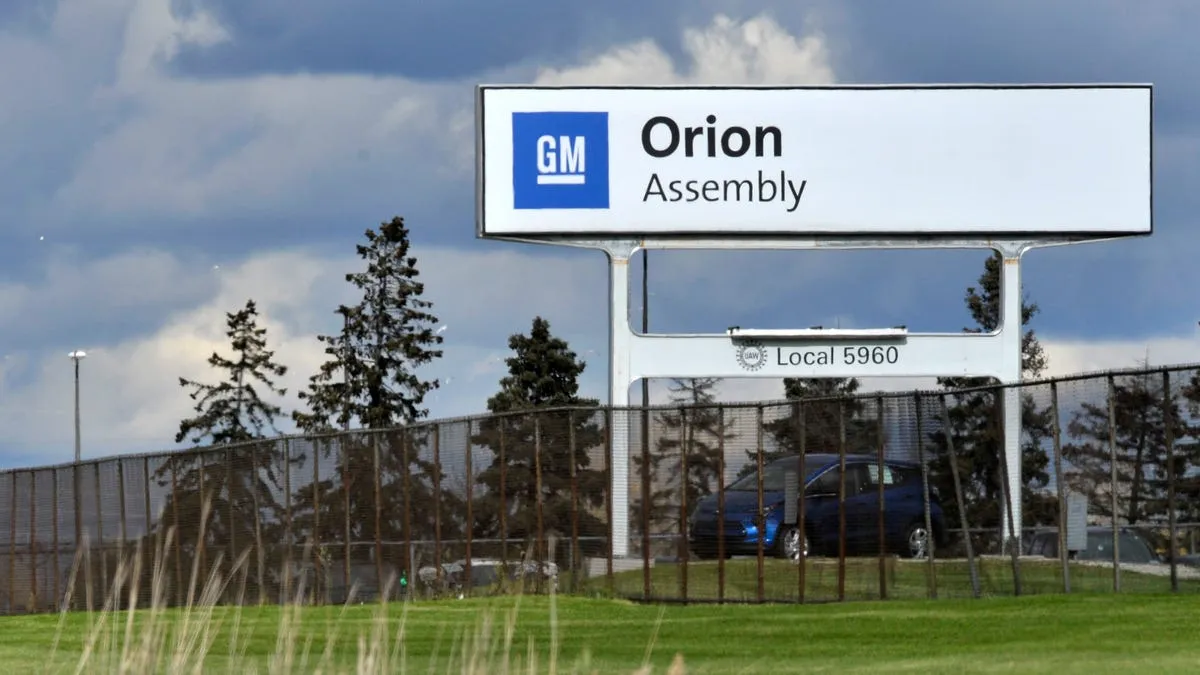
General Motors Co. (GM) has unveiled a significant investment plan amounting to $4 billion aimed at relocating production from Mexico to three strategic plants within the United States. This decision includes the revival of the previously shuttered Orion Assembly plant located in suburban Detroit, according to three sources familiar with the situation, as reported by The Detroit News.
The production shift will focus on manufacturing full-size SUVs and light-duty pickups at the Orion facility, which had previously been slated for retooling to produce electric trucks. However, due to a decline in market demand for these vehicles, the focus has now shifted. The gas-powered Equinox compact SUV is set to be produced in Fairfax, Kansas, while the gas-powered Blazer, which faced controversy during its launch at a GM plant in Mexico, will now be manufactured in Spring Hill, Tennessee.
Following an inquiry from The Detroit News on these developments, GM took to its website to share further details. GM's CEO, Mary Barra, emphasized the company's dedication to American innovation and manufacturing, stating, “We believe the future of transportation will be driven by American innovation and manufacturing expertise. Today’s announcement demonstrates our ongoing commitment to build vehicles in the U.S. and to support American jobs.”
This strategic move is primarily motivated by a surge in demand for high-profit SUVs and an initiative to mitigate the impact of expensive import tariffs that were introduced during President Donald Trump's administration. Trump’s objective was to stimulate a manufacturing renaissance across the industrial heartland and beyond.
When GM initially announced plans in 2022 to retool the Orion Assembly plant for electric vehicle (EV) truck production, the state had estimated that the project would create approximately 2,300 jobs and retain an additional 1,000 positions. White House spokesperson Kush Desai remarked, “No president has taken a stronger interest in reviving America’s once-great auto industry than President Trump, and GM’s investment announcement builds on trillions of dollars in other historic investment commitments to Make in America.”
GM's decision to move production back to the U.S. is being hailed as a significant win for Trump's trade and tariffs policy, potentially signaling further shifts by both foreign and domestic manufacturers. This investment is considered one of the largest reshoring efforts in U.S. auto manufacturing since Trump assumed office for a second term.
Michigan Governor Gretchen Whitmer expressed gratitude towards GM for the investment, highlighting the importance of bringing more auto manufacturing back to Michigan and protecting thousands of well-paying, union auto jobs. Members of Michigan's congressional delegation also praised the automaker's decision. Representative Lisa McClain stated, “This investment is a game-changer for our district and a big win for hard-working Michiganders.”
Representative Debbie Dingell emphasized the necessity of producing a diverse product line, including electric vehicles, to maintain Michigan's leadership in the global auto industry. The reshoring of American auto jobs has been a longstanding commitment from Trump, reaffirmed during his campaign in Michigan and throughout his time in office.
Since his return to Washington in January, Trump has utilized tariff policies to pressure automakers into relocating production to the United States. He noted, “We give them a little bit of time before we slaughter them if they don’t do this,” during an April visit to Macomb County. Subsequently, Trump announced plans to offer partial tariff rebates for about two years to companies that assemble cars in the U.S. He had previously intended to impose a 25% tariff on foreign auto parts.
In addition to the investment in U.S. plants, GM has been transparent about its tariff exposure, which it recently amended to include costs between $4 billion and $5 billion. CEO Mary Barra indicated that the company aims to offset these tariffs by approximately 30% through efficient budgeting and increased domestic manufacturing.
Despite the significant changes in production, GM has reassured that its operations in Mexico will continue. The economy minister of Mexico stated that GM confirmed its plants in Ramos Arizpe, Silao, San Luis Potosí, and Toluca will operate as normal, with no anticipated layoffs. GM’s commitment to maintaining its Mexican operations comes amidst economic challenges in the country, attributed in part to fluctuating trade policies.
The Blazer's return to U.S. production marks a noteworthy shift, as the model was last built in the U.S. at a now-closed facility in Janesville, Wisconsin. The previous production decision to move the Blazer to Mexico in 2018 sparked considerable backlash from the United Auto Workers.
UAW President Shawn Fain expressed optimism about the potential for the auto industry, stating, “We’ve said for months that the auto industry could utilize excess capacity at U.S. auto plants and invest billions into our factories, our communities, and American autoworkers.” Fain commended GM for its strategic investment, indicating that the $4 billion decision would create thousands of well-paying union jobs.
In contrast, Stellantis NV has not announced any production shifts to the U.S. in response to tariffs. However, the company has made commitments to invest in U.S. plants, including reopening an assembly facility in Illinois and enhancing operations in Michigan and Indiana.
In conclusion, GM's $4 billion investment to shift production from Mexico to the United States exemplifies a significant step toward revitalizing American manufacturing and enhancing job opportunities in the auto industry. This strategic move not only aligns with the goals of U.S. trade policies but also reflects the evolving demands of consumers for SUVs and light-duty pickups.